Egypt is the country with the 7th most mismanaged plastic waste, according to a report published in Science magazine. The report was based on data collected in 2010 and one must wonder whether the findings would have been different if the capital’s informal waste collectors, the ‘zabbaleen’, had been allowed to continue their work unhindered.
The zabbaleen, a word meaning ‘garbage people’, are the descendants of farmers from Upper Egypt who moved to Cairo in the 1940s. Together with another migrant group, they have made a living in Cairo collecting, sorting, salvaging, and recycling around a third of the waste of the city’s nearly 20 million residents – mainly those from the poorest areas. With the help of NGOs, the zabbaleen recycled up to 80% of the waste they collected, more than three times the amount of waste recycled by garbage collectors in major cities in developed nations.
The zabbaleen historically collected waste free of charge; they were part of Cairo’s informal public sector. Their work was not supported by the government. Their income instead came from selling the recyclable material and from the pigs they raised on the organic waste. Many residents also gave monetary tips to the garbage collectors. The zabbaleen supported themselves on this meagre income, living in several poor settlements around the city.
Backward step
Believing the zabbaleen’s system to be backwards and unhygienic, in 2003 the Egyptian government let waste collection contracts for Cairo to three multinational companies (and one local company), pushing the zabbaleen out of the system. These companies were required to recycle only 20% of the waste collected, the other 80% making its way to landfills.
It did not take long for residents to complain about this new service. They now had to pay for their garbage collections, which now did not include door-to-door pick-ups. There were not enough bins in the streets to hold all the waste and issues emerged with overflowing garbage. The new companies simply could not keep up with the rate of waste generation.
Significant as the impact was on waste management in Cairo, the effect on the zabbaleen’s way of life was if anything greater: they lost access to the garbage that was the foundation of their economic activities. Eventually, the private companies realised that they needed the zabbaleen – not least to deal with the access issues that Cairo’s narrow alleys presented for the collection equipment they were trying to use – and brought them in as subcontractors. However, the payments made to the zabbaleen under the subcontracting system were low, and the arrangement failed. Some residents, though, continued to hire the zabbaleen independently, finding their service more convenient than taking waste to communal bins.
The H1N1 influenza outbreak brought another setback: it resulted in the government ordering a cull of all the zabbaleen’s pigs. Pigs can be nature’s gift to waste management, and were an essential part of the zabbaleen’s recycling program, as they consumed much of the organic waste that was sorted from the garbage. Losing their pig herds meant the zabbaleen stopped collecting organic waste and the effect was felt almost immediately. Again, the trash started piling up, giving rise to increased reports of rats and concerns about disease. And once again, the zabbaleen suffered as they lost both an income stream and an important food source: while the majority of Egyptians are Muslims, the zabbaleen are Coptic Christians and so don’t share their countrymen’s religious proscription on eating pork.
In good company
Since the 2011 revolution, many changes have taken place in Egypt. Spurred on by environmentally-minded individuals, small businesses, and new government ministers, waste collection is one of the areas that appears to be improving. The government has finally set about regularising the zabbaleen system, through the creation of small zabbaleen-run companies. Once registered, the local companies are given uniforms, government vehicles and business training from an NGO. The system debuted in a few areas in 2014, and zabbaleen companies are competing successfully for commercial contracts. With the demise of the 2003 contracts in 2017, a new system that reinstated door to door collections was rolled out, with services increasingly supplied by local companies.
However, the Government continues to try to crack down on zabbaleen waste sorting practices, which give rise to health concerns. The city encouraged residents to at least separate organic from non-organic waste, but with limited results. Now, kiosks are being set up that allow people to sell their own separated recycling; good news for cash-strapped Cairenes, but a source of concern for zabbaleen waste workers who see a threat to their income.
While Egypt’s local and national authorities have struggled to find the right collection and recycling system, the role of the Egyptian population in improving waste management needs to be considered. Separating organic and non-organic waste will help keep any paper or board waste clean so that it can be recycled. Beyond this, there are more steps people can take to make their waste is recycled, especially in areas outside Cairo where zabbaleen do not operate. Contacting some of the independent initiatives are tackling recycling in a way that is more complimentary to the zabbaleen system.
- Recyclobekia is a new company that offers electronic waste recycling services. The company collects, sorts, and dismantles e-waste – old laptops, computers, cameras, phones, and more – and in return companies and individuals are given credit for an online shop or even cash if they recycle more than 500 kg of waste.
- GreenTec offers automated recycling machines that allow individuals to deposit a variety of wastes, and receive credit for items such as mobile phones.
- Another new venture coming out of Cairo is Up-fuse, a company that upcycles plastic bags and creates backpacks, tote bags, laptop covers, and other accessories with this waste. They also offer workshops to teach others how to upcycle.
- Gamayit El-Misbah El-Mudii, started in 2005, provides free collection and recycling of paper, plastic, glass, and other items. They collect from households, schools, and businesses.
- Resala, a wide-ranging charity organization, also offers recycling services.
But the most important action is to reduce the amount of waste being generated. Less waste produced means less waste needing to be managed – particularly the wastes that have little value to collectors such as the zabbaleen. Bringing reusable bags to the supermarket means that you don’t need the plastic ones. Investing in a water filter and a reusable bottle allows you to drink tap water and skip the plastic water bottles. Avoiding buying food packaged with polystyrene will remove a non-recyclable product from your waste.
There are plenty of guides to a reducing plastic use, and other websites offering tips and ideas on reducing waste. Many of the suggestions will be cheaper and healthier than the waste generating alternatives. If more Egyptians take these steps, and if Cairo can establish a waste collection system that is effective while providing waste collectors with a living, perhaps Egypt will escape from the top ten list of worst plastic offenders.
We are grateful to EcoMENA for the opportunity to reproduce this article, a version of which first appeared here. EcoMENA is a website focused on raising awareness of renewable energy, sustainability, waste management, environment protection, energy efficiency and resource conservation in the Middle East and North Africa (MENA) region.
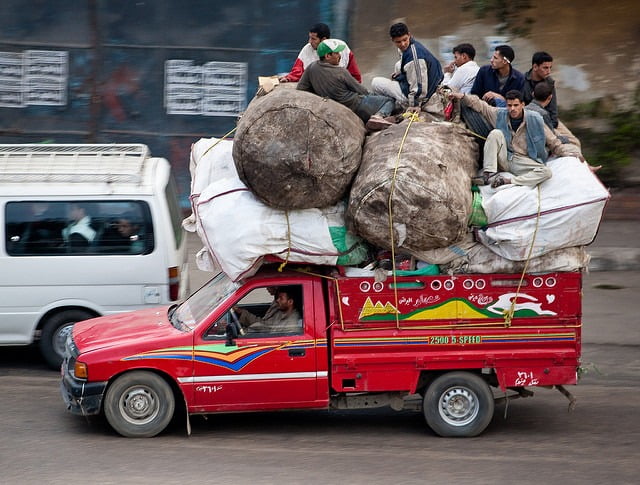
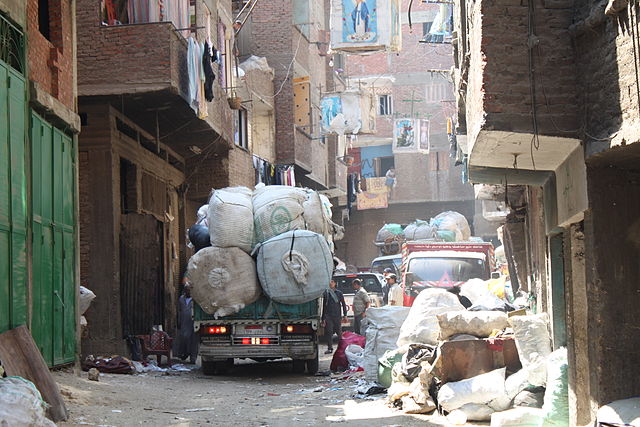


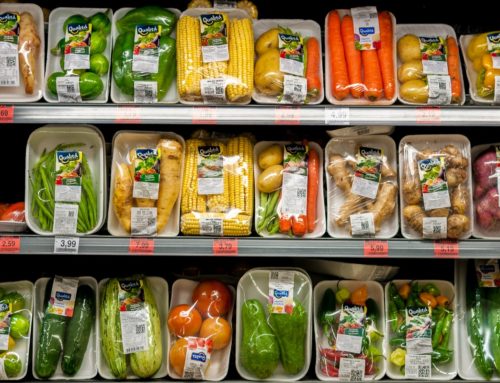
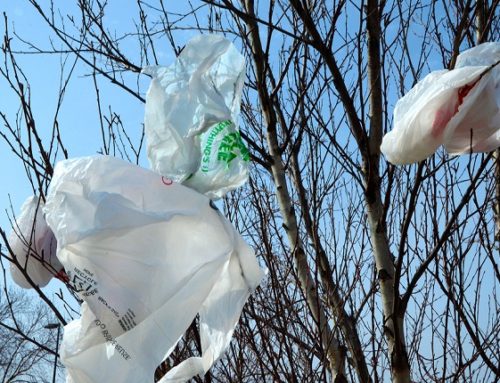
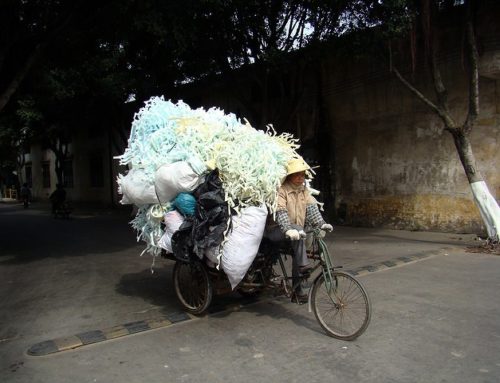
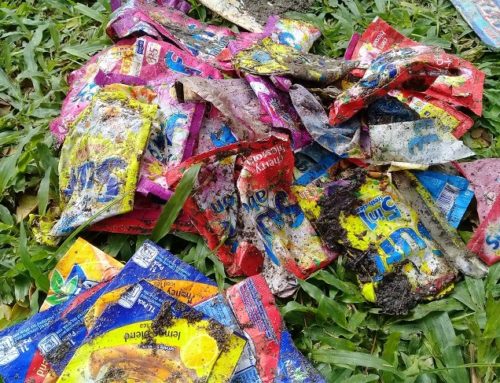
Leave A Comment